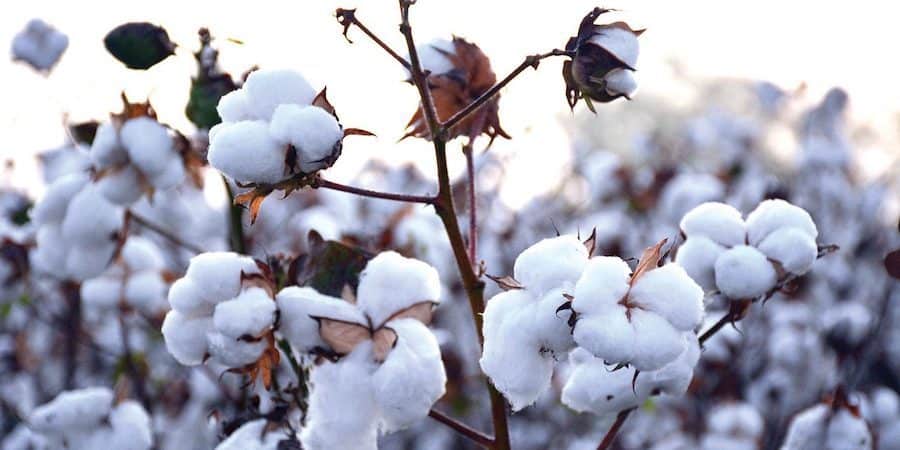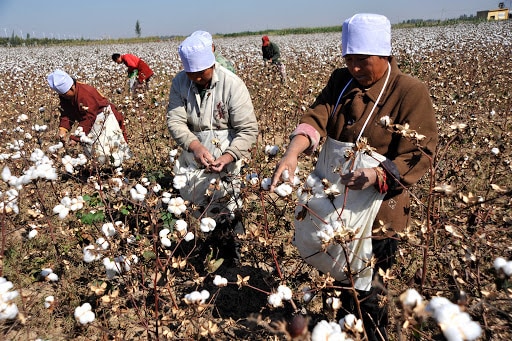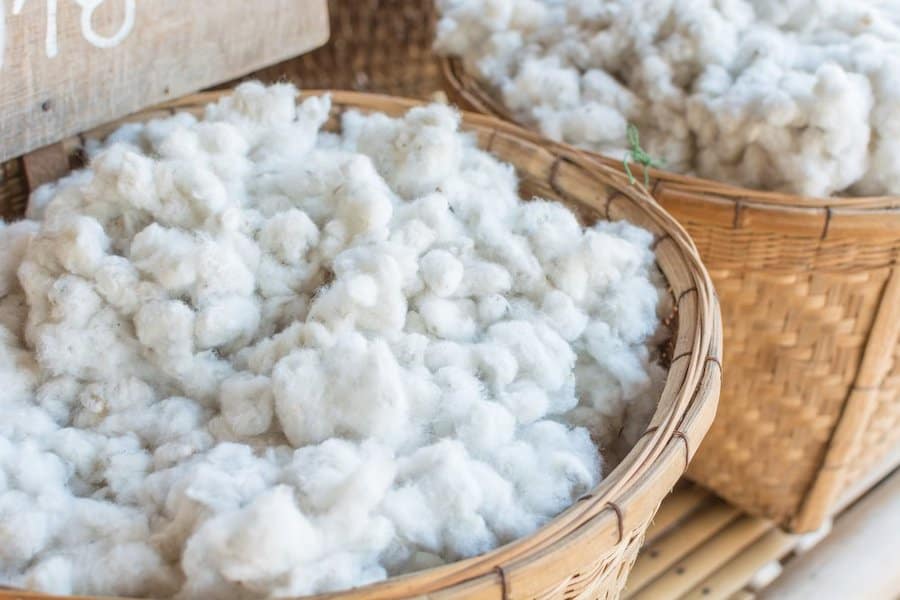Due to the wasteful methods used in the production of non-organic cotton, some skepticism has popped up around this fabric as a sustainable option. However, there’s a big difference between traditional cotton and its organic counterpart.
When considering the environmental and human impacts in comparison to other materials, organic cotton is a more eco-friendly material than you may think.
Water Consumption

It is an undeniable fact that non-organic cotton is incredibly damaging to the environment. According to the World Wildlife Foundation, it takes 2,700 liters of water to produce just one cotton t-shirt. Organic cotton, however, tells a much different story.
The Soil Association found that organic cotton can be grown using 91% less water than its non-organic counterpart. Seeing as 80% of organic cotton crops are rainfed, not irrigated, farmers are also able to produce these plants without drawing heavily on local water resources.
Water Pollution

The copious amount of pesticides and insecticides used in traditional cotton farming has made it one of the world’s dirtiest crops. Non-organic cotton farming accounts for 24% of the world’s insecticide sales and 11% of global pesticide consumption.
Organic cotton, which is grown without these harmful chemicals, can reduce water pollution by up to 98%. Reducing runoff from pesticides protects both the ecosystems and people that depend on the local water supply.
Global Warming Impacts
In addition to polluting our soil and water, pesticides also are a massive contributor to greenhouse gas emissions in agriculture. A lifecycle analysis by PE International found that the total global warming potential for organic cotton was 46% lower than traditional cotton. Eliminating pesticides is an essential part of reducing the fashion industry’s emissions.
Health and Safety

When we talk about sustainability, we can’t just talk about environmental impacts. Fabrics must be supported by humane labor practices that ensure the health and safety of farmers to truly be sustainable.
The toxic chemicals used in traditional cotton farming pose a massive health risk to farmers around the world. There is a link between consistent inhalation and consumption of these chemicals and cancer, neurological diseases, and reproductive complications.
By purchasing items made of organic cotton, consumers are not only supporting a far more environmentally conscious production method, but they’re also helping protect the health of cotton farmers worldwide.
An Imperfect Solution
Organic cotton is not the magic solution we’ve all been looking for. There are legitimate drawbacks to organic cotton that should be considered.
Concerns have arisen that unsustainable farming practices may offset the potential benefits of organic cotton. Research from the University of Oregon found a link between large corporations entering the organic cotton market and an increase in unsustainable farming practices.
As consumers become more interested in sustainable markets, it’s even more important to research the brands you buy from. Know the difference between a brand that’s making a positive difference in sustainable fashion, and a brand that’s taking advantage of conscious consumers.
Many sustainable fashion advocates will offer up sustainable fabrics like hemp or Tencel as alternatives to organic cotton. While these are excellent solutions, they aren’t currently scalable to the degree needed to fully replace all use of cotton. These options should be further researched and encouraged, but right now organic cotton is an effective next step.
Moving in the Right Direction

Organic cotton isn’t the end of sustainable fashion advocacy, but it’s a meaningful step in the right direction. Sustainably farmed organic cotton is a far preferable alternative to most large scale fabric options.
Organic cotton currently makes up less than 1% of the world’s global cotton production, while the other 99% is poisoning water supplies, wasting resources, and harming farmers.
As more brands switch to organic cotton, fewer pesticides and microplastics will be released into our environment. That’s something we need to get behind.
This article was written in response to a question we received from one of our readers. Have any more questions that you’d like us to investigate? Feel free to comment below!




Leave a comment